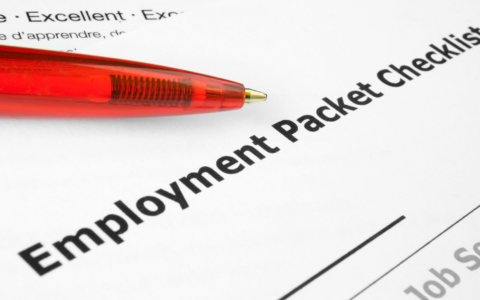By: University of California Berkeley Career Center
Often the most current and specific information about a career field may not be available online. The best information comes from people who are actually working in that career field.
An informational interview is an informal conversation you can have
with someone working in an area of interest to you. It is an effective research tool and is best done after preliminary online research. It is
not a job interview, and the objective is not to find job openings.
You may feel awkward reaching out to people you don’t know. However, most people actually enjoy taking a few moments out of their day to reflect on their professional life and give advice to someone with an interest in their field.
Benefits of Informational Interviewing
- Get firsthand, relevant information about the realities of working within a particular field, industry or position. This kind of information is not always available online.
- Find out about career paths you did not know existed.
- Get tips and insider knowledge about how to prepare for and land your first career position.
- Learn what it’s like to work at a specific organization.
- Initiate a professional relationship and expand your network of contacts in a specific career field; meet people who may forward job leads to you in the future.
Six Steps of Informational Interviewing
1. Research Career Fields
- Do some initial research on the career field or employer using internet and print resources.
2. Identify People to Interview
- Pursue your own contacts. People you already know, even if they aren’t in fields of interest to you, can lead you to people who are. This includes family, friends, teaching assistants, professors and former employers.
- Identify Cal alumni to contact; they often take a special interest in “giving back” to Cal students. Utilize the Berkeley Career Network and LinkedIn to find them.
- Review the Book of Lists, a directory of leading employers in major urban areas.
Real-Life Example: Finding a Person to Interview
Lucy had become interested in marketing but wasn’t sure how to find people in the field to talk to. She had worked as a clerk/typist in the payroll office of University Extension for several years.
She mentioned her career interest to her supervisor, who pointed out that Extension had a marketing department and that she’d be happy to introduce her to the director. This “right in your own back yard” referral led to a great informational interview and lots of other contacts.
3. Prepare for the interview
- Develop a brief introduction of yourself and your hopes for the meeting.
- Plan open-ended questions to ask.
4. Initiate contact
- Contact the person by email or phone (see sample telephone script below).
- Mention how you got his or her name.
- Ask whether it’s a good time to talk for a few minutes.
- Emphasize that you are looking for information, not a job.
- Ask for a convenient time to have a 20-30 minute appointment.
- Be ready to ask questions on the spot if the person says it is a good time for him/her and that s/he won’t be readily available otherwise.
Requesting an Informational Interview: Sample Phone Script
“Hello. My name is Malik Taylor and I’m a junior majoring in Media Studies at UC Berkeley. Is this a good time for you to talk briefly? I heard you speak at an event sponsored by the Undergraduate Marketing Association last semester. Although I am not currently looking for a job, I have become very interested in public relations and would like to learn more about the field. Would it be possible to schedule 20 to 30 minutes with you at your convenience to ask a few questions and get your advice on how best to prepare to enter the field?”
5. Conduct the informational interview
- Dress neatly and appropriately, as you would for a job interview.
- Arrive on time or a few minutes early.
- Bring your list of questions and take notes if you like.
- Restate that your objective is to get information and advice, not a job.
- Give a brief overview of yourself and your education and/or work background.
- Be prepared to direct the interview, but also let the conversation flow naturally, and encourage the interviewee to do most of the talking.
- Respect the person’s time. Limit the meeting to the agreed-upon timeframe.
- Ask the person if you may contact them again in the future with other questions.
- Ask for names of other people to meet so as to gain different perspectives.
Note: You can bring a resume, but don’t take it out right away or your interviewee may think you are actually fishing for a job. At some point you may wish to ask for input about it, but first establish a nice rapport with the person.
6. Follow up
- Keep records. Write down what you learned, what more you’d like to know, and what your next steps should be.
- Send a thank-you note within 1-2 days to express your appreciation for the time and information given. Based on whether the informational interview was relatively informal or more businesslike, this may be a brief handwritten note, an email, or a business letter.
- Keep in touch with the person, especially if you had a particularly nice interaction; let them know that you followed up on their advice and the outcome. This person could become an important part of your network.


















